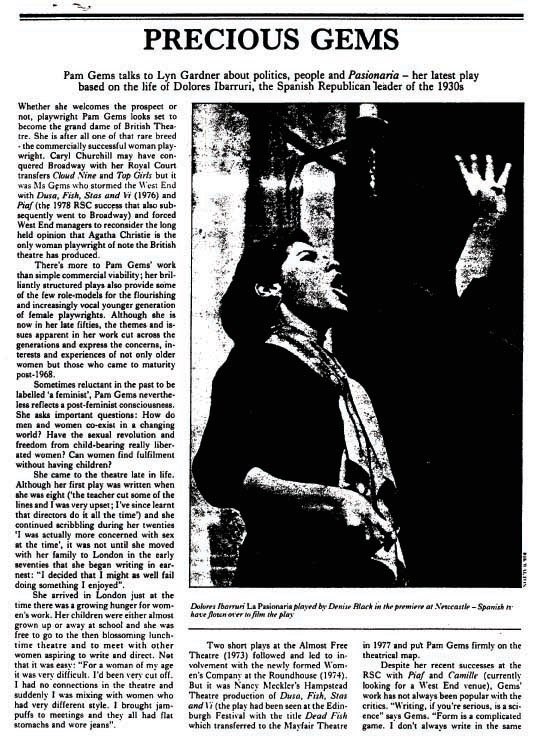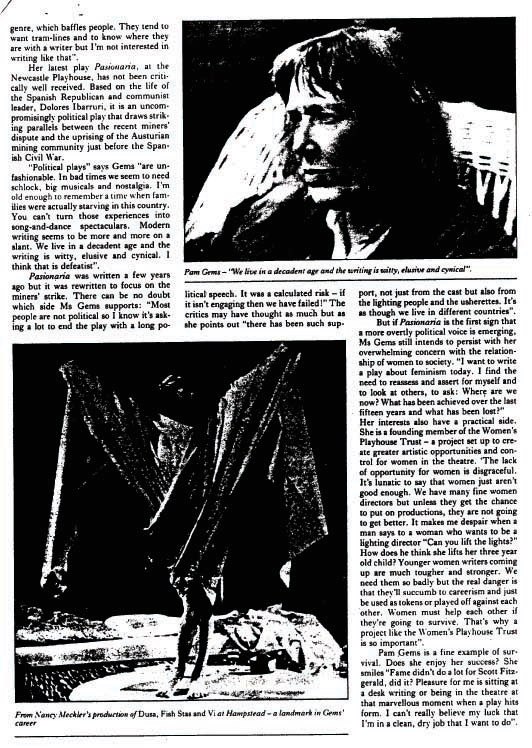Pasionaria



Denise Black as Dolores Ibárruri, La Pasionaria. Playhouse Theatre, Newcastle upon Tyne (1985).
In 1976 I was a child during the Spanish Civil War. There were pictures in the papers of women and children being bombed, people running, cities flattened. Spaniard fighting Spaniard - that most terrible tragedy - civil war. And reports of a woman -known as La Pasionaria - who was either a ferocious fiend, or a courageous defender of freedom, depending on the newspaper you read. Who was she? A Spanish figurehead, it seemed, famous for saying `They shall not pass' and `It is better to die on your feet than to live on your knees'.
Dolores Ibárruri was born in a mining community in a Spain still seemingly locked in the seventeenth century. She lived in near starvation (four of her six children were dead by the age of four). As a woman in a country dominated by the most macho culture, by oppressive Catholicism tinged with Islam, as an illiterate peasant, what hopes for her? Yet this woman became a member of Parliament in the Cortes, the Spanish government.
After Franco won the civil war, Pasionaria fled to Russia and lived in Moscow with her surviving children, Amaya and Reuben (Reuben was killed at Stalingrad). She continued to be a dynamic force, devoting herself to the lot of exiled Spaniards everywhere, and going herself to the Kremlin in 1968 to condemn the Soviet invasion of Czechoslovakia. But she longed for home. In 1977 Franco died. Restored as the elected Deputy of Asturia, Pasionaria went to Bilbao and brought ten thousand weeping listeners to their feet, her oratory unaffected by age.
We produced "Pasionaria" in Newcastle in 1985, during the Miners' Strike, with Sue Dundendale as director and Denise Black as a fiery and mesmerising Dolores. We wrote to Pasionaria for her blessing and received a video from her. In it she said:
I am unable to attend the performance of this work due to the circumstances in which we live. I cannot attend the performance of this play, but I wish to say that I am deeply grateful that you have taken the trouble to put on this play about the life of a working-class woman - grand-daughter, daughter and wife of miners - who has worked and been subject all her life to exploitation. It is not difficult to speak of the miners' situation, not only in our country but in all those countries where men have to survive by clawing from the earth the minerals which will enrich their exploiters.
I wish to conclude these few words by expressing my solidarity with the English miners, our fellow workers, and with their success in their struggle to improve their living conditions.
The video showed an elderly, extremely beautiful woman, with the uniquely focused asperity of the woman politician - forever trying to juggle personal and professional life. Plus ca change.
Pam Gems


